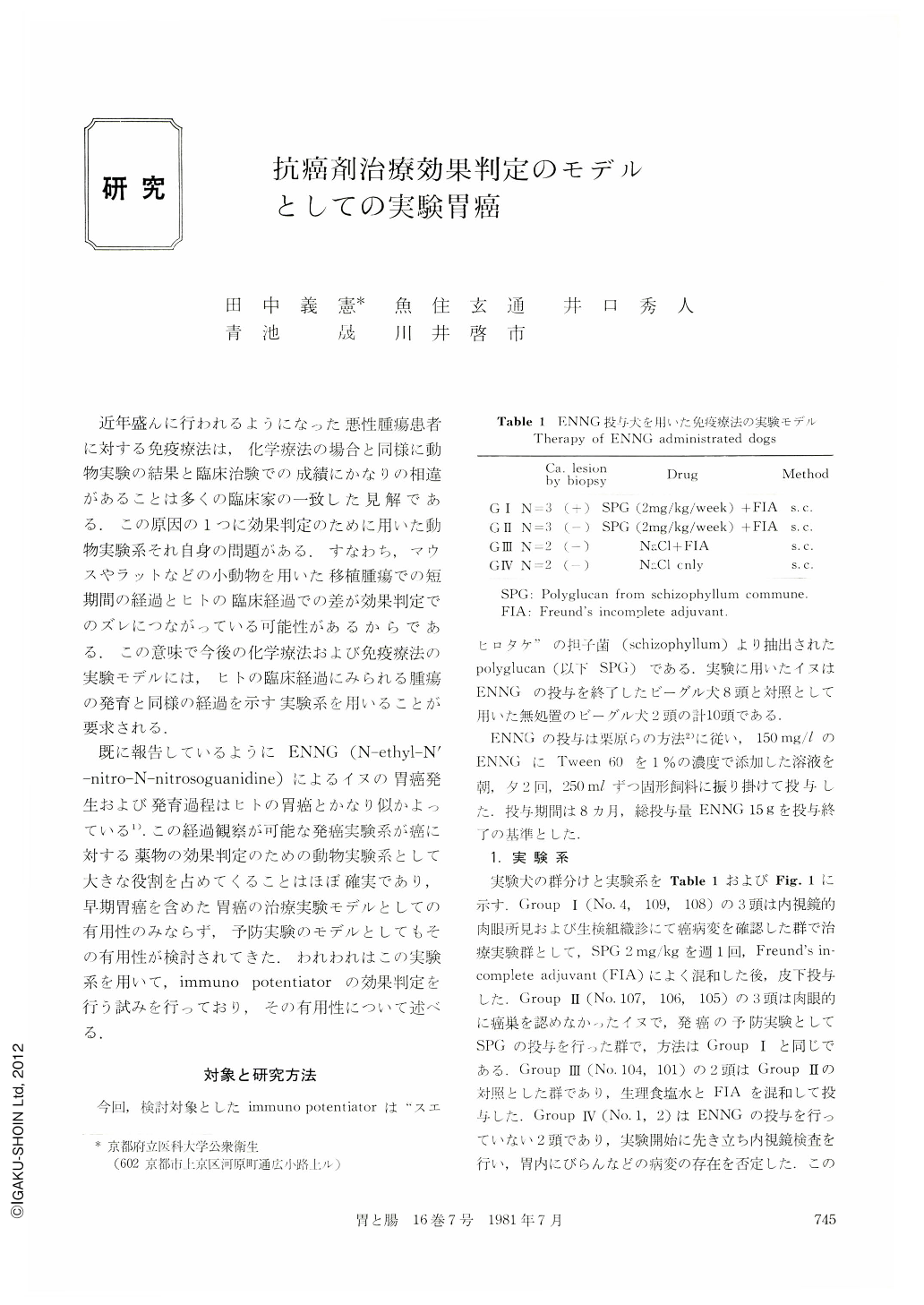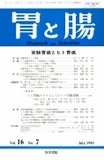Japanese
English
- 有料閲覧
- Abstract 文献概要
- 1ページ目 Look Inside
近年盛んに行われるようになった悪性腫瘍患者に対する免疫療法は,化学療法の場合と同様に動物実験の結果と臨床治験での成績にかなりの相違があることは多くの臨床家の一致した見解である.この原因の1つに効果判定のために用いた動物実験系それ自身の問題がある.すなわち,マウスやラットなどの小動物を用いた移植腫瘍での短期間の経過とヒトの臨床経過での差が効果判定でのズレにつながっている可能性があるからである.この意味で今後の化学療法および免疫療法の実験モデルには,ヒトの臨床経過にみられる腫瘍の発育と同様の経過を示す実験系を用いることが要求される.
既に報告しているようにENNG(N-ethyl‐N'-nitro-N-nitrosoguanidine)によるイヌの胃癌発生および発育過程はヒトの胃癌とかなり似かよっている1).この経過観察が可能な発癌実験系が癌に対する薬物の効果判定のための動物実験系として大きな役割を占めてくることはほぼ確実であり,早期胃癌を含めた胃癌の治療実験モデルとしての有用性のみならず,予防実験のモデルとしてもその有用性が検討されてきた.われわれはこの実験系を用いて,immuno potentiator の効果判定を行う試みを行っており,その有用性について述べる.
As a new experimental model for immunotherapy, dogs administered with ENNG (N-ethyl-N'-nitro-N-nitrosoguanidine) were used to test the effects of anti-cancer drugs. The immuno-potentiator which is the object of study in finding the effects is SPG (schizophyllum polyglucan). Three beagle dogs wherein 12 months had passed after administration of ENNG and having cancerous lesions were used as one group for experimenting therapy. Three dogs administered with ENNG and showing no cancerous lesions after five months were used as another group for experimenting prevention. A total of ten dogs including the two used for control with the group for prevention and another two without ENNG administration were observed endoscopically for eight months.
For three months after SPG (2mg/kg/week) administration, the change in mitogen response of peripheral lymphocyte by con A and PHA which is T cell mitogen was studied as the immunological parameter.
As a result, the group administered with SPG maintained the same grade of stimulation index in mitogen response of peripheral lymphocyte as the normal control group. On the contrary, for those without SPG administration, a distinct decrease in mitogen responsecontinued. That is, it was supposed that activation in the T cell function by the SPG was occuring in the SPG‐administered group. However, endoscopical follow-up study indicated that the cancerous lesions of the three dogs in the therapy experiment group advanced and thus no therapeutic effect was the decision. Moreover, in the experiment for prevention, one out of the three dogs indicated cancer but the control group of two dogs without SPG administration showed no apparent cancer lesion. It cannot be stated definitely that this shows preventive effects, but because three is few in number, further investigation is necessary.
The usefulness of canine gastric cancer as experimental models for testing therapeutic effects of anticancer drugs in early gastric cancer in human beings were studied. Furthermore, follow-up study by endoscopy and also by various immunological parameters were made possible and it was confirmed that the effects of various immuno therapeutic drugs could be investigated.

Copyright © 1981, Igaku-Shoin Ltd. All rights reserved.


